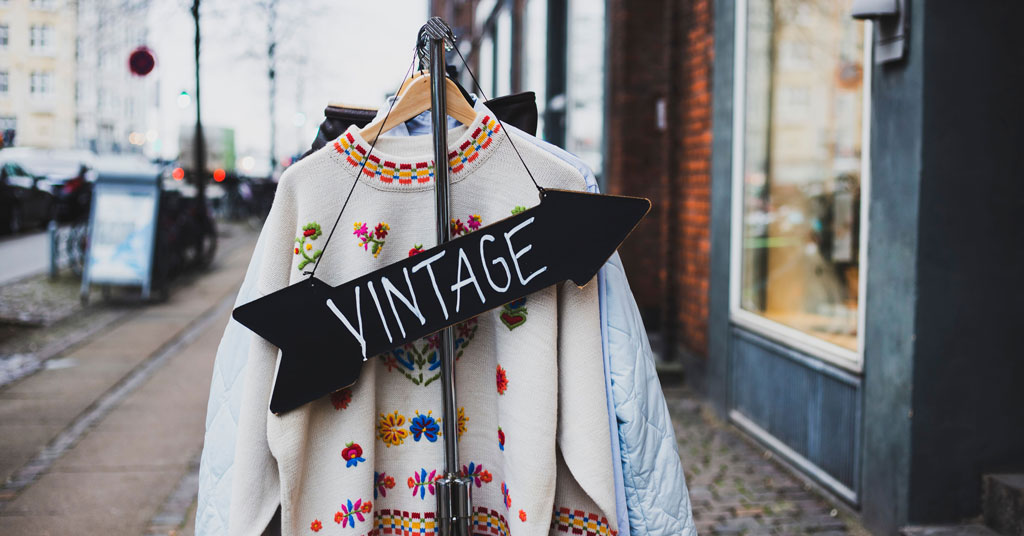Capturing Eco-Focused Consumers as They Re-Emerge Post-Covid

For more than a year now, the mere thought of sharing items and handling used goods has been enough to set alarm bells ringing. However, despite concerns, the secondhand market, particularly in fashion, has experienced considerable growth and success, with an increasing number of shoppers becoming more open to making purchases of “pre-loved” clothing and accessories.
In fact, data from eBay has revealed a 404% year-on-year increase in pre-loved sales since 2018. In 2020 alone in the U.K., for example, more than 12 million people purchased a pre-loved item of clothing – dismissing any virus-spreading concerns and showing clear evidence of a shift in consumer attitudes.
It’s patterns like these that businesses must adapt to if they want to survive the volatile commercial landscape carved by pandemic uncertainty, digital transformation, and now, increasing environmental concerns. Having worked closely with many retail businesses in recent months, overcoming disruption and creating more adaptable marketing models, I offer the following advice on how retailers can capture the eco-focused customer without jeopardizing caution during this continuing unpredictable period.
Across all sectors, sustainability and environmental concern are at the forefront of business leaders’ minds. For most, concern is being driven by governmental pressures, and rightly so as the climate crisis edges us closer to irreversible damage. However, increasingly, consumers are forcing greater action from businesses by collectively exercising their buying power and choosing those doing more than simply “their bit” for the planet.
For example, in fashion, this is evident in the rising demand of the resale market. Consumers are beginning to condemn wasteful practices such as fast fashion, and instead opt for more sustainable alternatives by either investing in higher-quality items designed to last, or buying secondhand to extend the life of clothing and prevent landfill pileup.
For businesses, adapting should be seen as more than just a temporary adjustment to a passing trend, and rather as a permanent solution to a growing and urgent concern. Again, in fashion, we have seen both large and startup organizations respond to the resale shift by investing in the development of new business models to capture and retain the growing segment of eco-focused customers. For example, the likes of Vestiaire Collective, The RealReal, and thredUP have all been set up specifically for reselling luxury secondhand clothing and accessories. Similarly, established retailers such as Selfridges have added pre-loved services to their offerings.
Although these businesses may have had the capital to make such significant investments, there is also opportunity for those with smaller budgets to engage the increasing number of eco-conscious consumers by re-strategizing their marketing and communication practices.
Targeting the biggest opportunities
The biggest opportunity, however, is through use of a marketplace selling strategy, whereby third-party providers such as eBay, Amazon, and Depop, can be used for reselling goods that may be out of season, or that have been returned because of small faults or through a new buyback initiative. These platforms are already in frequent use by consumers buying directly from other consumers, allowing businesses to target users in safe and familiar spaces, with the additional benefit of a trusted brand name.
With these marketplaces already saturated with items from a variety of sellers and sources, marketing efforts such as PPC can be used to help increase the visibility of your products. Much like any advertising strategy, promotions for pre-loved items must be well-targeted for the best ROI.
A targeted approach also creates a strong case to focus on alternative shopping channels such as social commerce platforms Instagram and Facebook Marketplace. This is because of an alignment of demographics, with those more likely to buy secondhand (Gen Z), also making up a large segment of users of social media platforms.
Again, PPC tactics can be implemented on social media to ensure products are being seen by the right users. Additionally, a social commerce strategy can also be supported by brand partnerships and influencer campaigns with individuals who have established followings within the niche, such as Depop influencers.
These ads or partnerships can help create a seamless journey from discovery to conversion, and even lead to repeat purchases and advocacy through a follow and share, without a user having to leave the app. In doing this, brands are also able to raise awareness of their eco-commitments while encouraging engagement and conversation that, in turn, can help spread the word even further.
However, implementing strategies like these for current product offerings across platforms and alongside traditional ads and marketing tactics can become time-consuming and a drain on resources – although any issues can quickly be ironed out with software and technology that can help streamline activity through automation, machine learning, data, and insights for informed decision-making.
While the shift toward resale is particularly evident within fashion, it is by no means the only sector having to accommodate the growing eco-focused segment. In fact, IKEA has introduced a similar buyback initiative for popular furniture items that will be resold at discounted rates.
In a sense, this is widening accessibility to certain products and increasing the pool of potential customers for many businesses in both the eco-segment and within various financial demographics. When you think of this in those terms, it makes complete commercial sense to consider a move into the pre-loved market, despite how cautiously you may be inclined to act because of current uncertain conditions.
Nate Burke is CEO and founder of U.K.-based Diginius, a software and solutions firm focused on helping businesses achieve maximum impact from their online sales and marketing activities. An early e-commerce pioneer and entrepreneur, he launched his first Internet business in 1997 and is a two-time Ernst & Young Entrepreneur of the Year nominee.
Share this Feature
Recommended Reading:
| ADVERTISE | SPONSORED CONTENT |
FRANCHISE TOPICS
- Multi-Unit Franchising
- Get Started in Franchising
- Franchise Growth
- Franchise Operations
- Open New Units
- Franchise Leadership
- Franchise Marketing
- Technology
- Franchise Law
- Franchise Awards
- Franchise Rankings
- Franchise Trends
- Franchise Development
- Featured Franchise Stories
| ADVERTISE | SPONSORED CONTENT |








 The franchise listed above are not related to or endorsed by Franchise Update or Franchise Update Media Group. We are not engaged in, supporting, or endorsing any specific franchise, business opportunity, company or individual. No statement in this site is to be construed as a recommendation. We encourage prospective franchise buyers to perform extensive due diligence when considering a franchise opportunity.
The franchise listed above are not related to or endorsed by Franchise Update or Franchise Update Media Group. We are not engaged in, supporting, or endorsing any specific franchise, business opportunity, company or individual. No statement in this site is to be construed as a recommendation. We encourage prospective franchise buyers to perform extensive due diligence when considering a franchise opportunity.